Jerzy Buzek
| Jerzy Buzek |
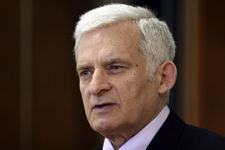
|
24th President of the European Parliament
|
| Incumbent |
Assumed office
14 July 2009 |
| Vice President |
14
Giovanni Pittella
Rodi Kratsa-Tsagaropoulou
Stavros Lambrinidis
Miguel Angel Martínez Martínez
Alejo Vidal-Quadras
Dagmar Roth-Behrendt
Libor Rouček
Isabelle Durant
Roberta Angelilli
Diana Wallis
Pál Schmitt
Edward McMillan-Scott
Rainer Wieland
Silvana Koch-Mehrin
|
| Preceded by |
Hans-Gert Pöttering |
|
| Incumbent |
Assumed office
20 July 2004 |
|
In office
31 October 1997 – 19 October 2001 |
| President |
Aleksander Kwaśniewski |
| Deputy |
Longin Komołowski
Leszek Balcerowicz
Janusz Tomaszewski
Janusz Steinhoff |
| Preceded by |
Włodzimierz Cimoszewicz |
| Succeeded by |
Leszek Miller |
|
In office
20 October 1997 – 18 October 2001 |
|
| Born |
3 July 1940 (1940-07-03) (age 70)
Smilowitz, Germany (now Smilovice, Czech Republic) |
| Political party |
Civic Platform |
| Spouse(s) |
Ludgarda Buzek |
| Children |
Agata Buzek |
| Alma mater |
Silesian University of Technology |
| Profession |
Chemical engineer |
| Religion |
Lutheranism |
| Signature |
 |
Professor Jerzy Buzek [ˈjɛʐɨ ˈbuzɛk] ( listen) (born 3 July 1940) is a Polish engineer, academic lecturer and politician. He was the Prime Minister of Poland from 1997 to 2001 and has been a member of the European Parliament since 13 June 2004. On 14 July 2009, he was elected its President, succeeding Hans-Gert Pöttering.[1]
listen) (born 3 July 1940) is a Polish engineer, academic lecturer and politician. He was the Prime Minister of Poland from 1997 to 2001 and has been a member of the European Parliament since 13 June 2004. On 14 July 2009, he was elected its President, succeeding Hans-Gert Pöttering.[1]
Early years
Jerzy Buzek was born to a Lutheran family on 3 July 1940 in what is now Smilovice in the Czech Republic.[2] He was born into the prominent Buzek family, which participated in Polish politics in the Second Polish Republic during the interbellum. The family was part of the Polish community in Zaolzie.[3] Buzek's father was an engineer. After the Second World War, his family moved to Chorzów. He is a Protestant.
Professional career
In 1963 Jerzy Buzek graduated from the Mechanics-and-Energy Division of the Silesian University of Technology, specialising in chemical engineering. He became a scientist in the Chemical Engineering Institute of the Polish Academy of Sciences. Since 1997 he has been a professor of technical science. He is also an honorary doctor of the universities in Seoul and Dortmund.
From 1997 to 2001, Buzek was Prime Minister of Poland (see below). In 1998 he became a laureate of the Grzegorz Palka Award, was nominated the European of the Year by the European Union Business Chambers Forum and Man of the Year by a Polish political weekly, Wprost.
After losing the parliamentary elections in 2001, he stepped back from Polish political life (although he was elected a member of the European Parliament in 2004) and focused more on his scientific work, becoming the prorector of Akademia Polonijna in Częstochowa and professor in the Faculty of Mechanical Engineering of the Opole University of Technology in Opole.
Political career
In the 1980s, Buzek was an activist of the democratic anti-communist movements, including the legal (1980–1981 and since 1989) and underground (1981–1989) Solidarity trade union and political movement in communist Poland. He was an active organiser of the trade union's regional and national underground authorities. He was also the chairman of the four national general meetings (1st, 4th, 5th and 6th) when the Solidarity movement was allowed to participate in the political process again.
Jerzy Buzek was a member of the Solidarity Electoral Action (Akcja Wyborcza Solidarność, AWS) and co-author of the AWS's economic program. After the 1997 elections he was elected to the Sejm, the lower house of the Polish Parliament, and was soon appointed Prime Minister of Poland. In 1999 he became the chairman of the AWS Social Movement (Ruch Społeczny AWS) and in 2001 he became the Chairman of the Solidarity Electoral Action coalition.
Jerzy Buzek's government
Between the years 1997–2001 he was the Prime Minister of Poland, first of the right-centrist AWS–UW coalition government until 2001, and then of the rightist AWS minority government. His cabinet's major achievements were four significant political and economic reforms: a new local government and administration division of Poland, reform of the pension system, reform of the educational system, and reform of the medical care system.[4] AWS was defeated in the Polish parliamentary election, 2001. Buzek resigned as the chairman of AWS Social Movement, and was replaced by Mieczysław Janowski.
Polish Member of the European Parliament
On 13 June 2004, in the European Parliament election, 2004, Jerzy Buzek was elected a Member of the European Parliament (MEP) from the Silesian Voivodeship, basing his candidacy only on the popularity of his name and on direct contact with the voters. He received a record number of votes, 173,389 (22.14% of the total votes in the region). His current party affiliation is with the Platforma Obywatelska, the governing party in Poland, which is a member of the European People's Party.
In the 2004-2009 European Parliament, he was a member of the Committee on Industry, Research and Energy, an alternate member of the Committee on the Environment, Public Health and Food Safety, a member of the Delegation to the EU–Ukraine Parliamentary Cooperation Committee, and an alternate delegate for the delegation for relations with the countries of Central America. He served as rapporteur on the EU's 7th Framework Programme for Research and Development, a multi-billion euro spending programme for the years 2007-2013.
On 7 June 2009, in the European Parliament election, 2009, Buzek was re-elected as a Member of the European Parliament from the Silesian Voivodeship constituency. Just as in the previous election, Buzek received a record number of votes in Poland: 393,117 (over 42% of the total votes in the district).
President of the European Parliament
On 14 July 2009, Buzek was elected President of the European Parliament with 555 votes, becoming the first person from the former Eastern Bloc and the first former Prime Minister since Emilio Colombo to gain that position.[1] He succeeded the German Christian Democrat MEP, Hans-Gert Pöttering.[1] He has pledged to make human rights and the promotion of the Eastern partnership two of his priorities during his term of office, which will last two and a half years until, due to a political deal, Social Democrat MEP Martin Schulz will take over.[1][5]
Career Timeline
Education
- from 1997 to 2001: Professor of technical sciences, actively engaged in public work, Prime Minister of Poland
- Honorary doctorates of the Universities of Dortmund, Seoul, Süleyman Demirel University (Isparta)
- University lecturer of long standing at Opole, Gliwice and Częstochowa, researcher at the Institute of the Polish Academy of Sciences in Gliwice
- 1972: Research stay, on a British Council scholarship, at the University of Cambridge
Career
- 1992–1997: Representative of Poland at the International Energy Agency – Programme of Greenhouse Gas Effect
- 1996: Organiser and chairman of an international network of 19 institutions working on energy and environmental protection
- Author of some 200 research papers, over a dozen rationalisations and three patents in the fields of environmental protection, power and process engineering
- 1981: Member of the independent, self-governing trade union 'NSZZ Solidarność', Chairman of the I National Congress of Delegates of 'Solidarność' in
- 1981: Active in the Solidarność underground structure after
- 1997: Elected as a Member of the Polish Parliament in
- As Prime Minister, in 1999, took Poland into NATO and prepared the country for integration into the European Union (including decentralisation of the State – consolidation of the role of local self-government)
- In 1998, began accession negotiations
- 1999: Represented the Social Movement of Solidarity Electoral Action (AWS) in the PPE–DE
- 1999: Established the annual Pro Publico Bono prize for the best national civic initiatives
- Set up the Family Foundation together with his wife (1998), having gained greater understanding of the meaning of help for the needy after their experiences with the battle for the life of their own child
Notes
- ↑ 1.0 1.1 1.2 1.3 "Euro parliament elects new leader". BBC News. 14 Jul. 2009. http://news.bbc.co.uk/1/hi/world/europe/8148729.stm. Retrieved 14 Jul. 2009.
- ↑ The Smilovice (German: Smilowitz, Polish: Śmiłowice) village lies in the region historically known as Austrian Silesia, more precisely the Zaolzie region. This territory was until 1918 part of Austria-Hungary (Austrian part), then from November 1918 part of Poland, then from 1920 part of Czechoslovakia. After the Munich Agreement in 1938 Czechoslovakia agreed to transfer the Zaolzie region to Poland, which, after the 1939 German invasion of Poland, was annexed by Germany. After World War II it became again a part of Czechoslovakia, and since 1993 - part of the Czech Republic. Buzek hails from the Polish minority in Zaolzie. At the time of his birth, it was officially named Smilowitz and was occupied by Germany as part of Landkreis Teschen.
- ↑ Nowak, Włodzimierz (6 Jul. 2009). "Nad Betlejem, nad Rolą kometa. Zaolziańska saga rodu Buzków". Gazeta Wyborcza. http://wyborcza.pl/1,75248,6792766,Nad_Betlejem__nad_Rola_kometa__Zaolzianska_saga_rodu.html. Retrieved 14 Jul. 2009.
- ↑ Transition by Mario I. Bléjer, Marko Škreb
- ↑ Henson, Carolyn (14 Jul. 2009). "UPDATE: EU Parliament Elects Ex-Polish PM Buzek As President * Article". Wall Street Journal. http://online.wsj.com/article/BT-CO-20090714-703860.html. Retrieved 14 Jul. 2009.
External links
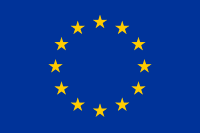 Presidents of the European Parliament Presidents of the European Parliament |
|
| Common Assembly: 1952–1958 |
|
|
| Parliamentary Assembly: 1958–1962 |
|
|
| European Parliament (Appointed): 1962–1979 |
Gaetano Martino · Jean Duvieusart · Victor Leemans · Alain Poher · Mario Scelba
Walter Behrendt · Cornelis Berkhouwer · Georges Spénale · Emilio Colombo
|
|
| European Parliament (Elected): 1979–present |
Simone Veil · Piet Dankert · Pierre Pflimlin · Henry Plumb · Enrique Barón Crespo · Egon Klepsch · Klaus Hänsch · José María Gil-Robles · Nicole Fontaine · Pat Cox · Josep Borrell · Hans-Gert Pöttering · Jerzy Buzek |
|
| Commission President · President of the European Council · Council Presidency · President of Parliament |
|
|
previous ← Members of the European Parliament 2004–2009 → following |
|
|
Austria MEPs 2004–2009 |
|
|
Maria Berger · Herbert Bösch · Harald Ettl · Othmar Karas · Jörg Leichtfried · Eva Lichtenberger · Hans-Peter Martin · Andreas Mölzer · Christa Prets · Reinhard Rack · Karin Resetarits · Paul Rübig · Karin Scheele · Agnes Schierhuber · Richard Seeber · Ursula Stenzel · Hannes Swoboda · Johannes Voggenhuber
|

 |
|
|
|
|
Belgium MEPs 2004–2009 |
|
|
Dutch electoral college
|
Ivo Belet · Frieda Brepoels (replacing Geert Bourgeois) · Philip Claeys · Jean-Luc Dehaene · Mia De Vits · Koenraad Dillen (replacing Filip Dewinter) · Saïd el Khadraoui · Annemie Neyts-Uyttebroeck · Bart Staes · Dirk Sterckx (replacing Guy Verhofstadt) · Marianne Thyssen · Frank Vanhecke · Johan Van Hecke (replacing Karel De Gucht) · Anne Van Lancker |
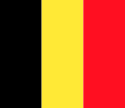
 |
|
|
French electoral college
|
Philippe Busquin (replacing Elio Di Rupo) · Véronique de Keyser · Gérard Deprez · Antoine Duquesne (replacing Louis Michel) · Alain Hutchinson · Pierre Jonckheer · Raymond Langendries (replacing Joëlle Milquet) · Frédérique Ries · Marc Tarabella (replacing Michel Daerden)
|
|
|
German electoral college
|
Mathieu Grosch
|
|
|
|
|
Bulgaria MEPs 2007–2009 |
|
|
Mariela Baeva · Slavcho Binev · Desislav Chukolov · Filiz Husmenova · Rumiana Jeleva · Metin Kazak · Evgeni Kirilov · Marusya Lyubcheva · Nikolay Mladenov · Vladko Panayotov · Atanas Paparizov · Biliana Raeva · Petya Stavreva · Dimitar Stoyanov · Vladimir Uruchev · Kristian Vigenin · Iliana Yotova · Dushana Zdravkova
|

 |
|
|
|
|
Cyprus MEPs 2004–2009 |
|
|
Adamos Adamou · Panayiotis Demetriou · Ioannis Kasoulides · Marios Matsakis · Yiannakis Matsis · Kyriacos Triantaphyllides
|

 |
|
|
|
|
Czech Republic MEPs 2004–2009 |
|
|
Jana Bobošíková · Jan Březina · Milan Cabrnoch · Petr Duchoň · Hynek Fajmon · Richard Falbr · Věra Flasarová · Jana Hybášková · Jaromír Kohlíček · Jiří Maštálka · Miroslav Ouzký · Miloslav Ransdorf · Vladimír Remek · Zuzana Roithová · Libor Rouček · Nina Škottová · Ivo Strejček · Daniel Stroz · Oldřich Vlasák · Jan Zahradil · Tomáš Zatloukal · Vladimír Železný · Jozef Zieleniec · Jaroslav Zvěřina
|
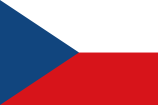
 |
|
|
|
|
Denmark MEPs 2004–2009 |
|
Margrete Auken · Hanne Dahl · Niels Busk · Mogens Camre · Ole Christensen · Anne Elisabet Jensen · Dan Jørgensen · Søren Søndergaard · Christel Schaldemose · Poul Nyrup Rasmussen · Karin Riis-Jørgensen · Johannes Lebech · Gitte Seeberg · Britta Thomsen |
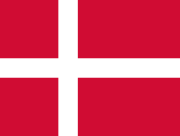
 |
|
|
|
|
Estonia MEPs 2004–2009 |
|
Toomas Hendrik Ilves (replaced by Katrin Saks) · Tunne Kelam · Marianne Mikko · Siiri Oviir · Toomas Savi · Andres Tarand
|

 |
|
|
|
|
Finland MEPs 2004–2009 |
|
|
Satu Hassi · Ville Itälä · Anneli Jäätteenmäki · Piia-Noora Kauppi · Eija-Riitta Korhola · Henrik Lax · Lasse Lehtinen · Riitta Myller · Reino Paasilinna · Sirpa Pietikäinen · Esko Seppänen · Hannu Takkula · Paavo Väyrynen · Kyösti Virrankoski
|
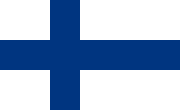
 |
|
|
|
|
France MEPs 2004–2009 |
|
|
East France
|
Jean Marie Beaupuy · Catherine Boursier · Bruno Gollnisch · Natalie Griesbeck · Benoît Hamon · Marie-Anne Isler-Béguin · Véronique Mathieu · Pierre Pribetich · Catherine Trautmann
|

 |
|
|
Île-de-France
|
Pervenche Berès · Paul-Marie Coûteaux · Harlem Désir · Anne Ferreira · Nicole Fontaine · Patrick Gaubert · Marine Le Pen · Bernard Lehideux · Alain Lipietz · Marielle de Sarnez · Gilles Savary · Pierre Schapira · Jacques Toubon · Francis Wurtz
|
|
|
Massif Central-Centre
|
Jean-Pierre Audy · Jean-Paul Denanot · Marie-Hélène Descamps · Janelly Fourtou · Catherine Guy-Quint · Brice Hortefeux · André Laignel
|
|
|
North-West France
|
Jean-Louis Cottigny · Brigitte Douay · Hélène Flautre · Brigitte Fouré · Jean-Paul Gauzès · Jacky Henin · Carl Lang · Fernand Le Rachinel · Marie-Noëlle Lienemann · Vincent Peillon · Tokia Saïfi
|
|
|
Overseas Territories
|
Catherine Néris · Margie Sudre · Paul Verges
|
|
|
South-East France
|
Jean-Luc Bennahmias · Guy Bono · Marie-Arlette Carlotti · Thierry Cornillet · Claire Gibault · Françoise Grossetête · Jean-Marie Le Pen · Patrick Louis · Michel Rocard · Martine Roure · Lydia Schenardi · Ari Vatanen · Dominique Vlasto |
|
|
South-West France
|
Kader Arif · Françoise Castex · Jean-Marie Cavada · Alain Lamassoure · Anne Laperrouze · Jean-Claude Martinez · Gérard Onesta · Béatrice Patrie · Christine de Veyrac · Michel Teychenné
|
|
|
West France
|
Marie-Hélène Aubert · Ambroise Guellec · Stéphane Le Foll · Roselyne Lefrançois · Philippe Morillon · Élisabeth Morin-Chartier · Yannick Vaugrenard · Bernadette Vergnaud · Philippe de Villiers
|
|
|
|
|
Germany MEPs 2004–2009 |
|
Alexander Nuno Alvaro · Angelika Beer · Rolf Berend · Reimer Böge · Hiltrud Breyer · André Brie · Elmar Brok · Udo Bullmann · Daniel Caspary · Jorgo Chatzimarkakis · Daniel Cohn-Bendit · Michael Cramer · Albert Dess · Garrelt Duin · Christian Ehler · Markus Ferber · Karl-Heinz Florenz · Ingo Friedrich · Michael Gahler · Evelyne Gebhardt · Norbert Glante · Lutz Goepel · Alfred Gomolka · Friedrich-Wilhelm Graefe zu Baringdorf · Ingeborg Grässle · Lissy Gröner · Matthias Groote · Klaus Hänsch · Rebecca Harms · Jutta Haug · Ruth Hieronymi · Karsten Friedrich Hoppenstedt · Milan Horáček · Georg Jarzembowski · Elisabeth Jeggle · Karin Jöns · Gisela Kallenbach · Sylvia-Yvonne Kaufmann · Heinz Kindermann · Ewa Klamt · Christa Klaß · Wolf Klinz · Dieter-Lebrecht Koch · Silvana Koch-Mehrin · Christoph Werner Konrad · Holger Krahmer · Konstanze Krehl · Wolfgang Kreissl-Doerfler · Helmut Kuhne · Alexander Graf Lambsdorff · Werner Langen · Armin Laschet · Kurt Joachim Lauk · Kurt Lechner · Klaus-Heiner Lehne · Jo Leinen · Peter Liese · Erika Mann · Thomas Mann · Helmuth Markov · Hans-Peter Mayer · Hartmut Nassauer · Angelika Niebler · Vural Öger · Cem Özdemir · Doris Pack · Tobias Pflüger · Willi Piecyk · Markus Pieper · Hans-Gert Poettering · Bernd Posselt · Godelieve Quisthoudt-Rowohl · Alexander Radwan · Bernhard Rapkay · Herbert Reul · Dagmar Roth-Behrendt · Mechtild Rothe · Heide Rühle · Frithjof Schmidt · Ingo Schmitt · Horst Schnellhardt · Juergen Schröder · Elisabeth Schroedter · Martin Schulz · Willem Schuth · Andreas Schwab · Renate Sommer · Ulrich Stockmann · Helga Trüpel · Feleknas Uca · Thomas Ulmer · Karl von Wogau · Sahra Wagenknecht · Ralf Walter · Manfred Weber · Barbara Weiler · Anja Weisgerber · Reiner Wieland · Joachim Wuermeling · Gabi Zimmer |
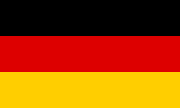
 |
|
|
|
|
Greece MEPs 2004–2009 |
|
|
Stavros Arnaoutakis · Katerina Batzeli · Panagiotis Beglitis · Giorgos Dimitrakopoulos · Georgios Karatzaferis (replaced by Georgios Georgiou) · Ioannis Gklavakis · Konstantinos Hatzidakis · Rodi Kratsa-Tsagaropoulou · Stavros Lambrinidis · Diamanto Manolakou · Maria Matsouka · Manolis Mavrommatis · Thanasis Pafilis · Marie Panayotopoulos-Cassiotou · Dimitrios Papadimoulis · Georgios Papastamkos · Antonis Samaras · Nikolaos Sifounakis · Giorgos Toussas · Antonios Trakatellis · Evangelia Tzampazi · Nikos Vakalis · Ioannis Varvitsiotis · Marilisa Xenogiannakopoulou
|

 |
|
|
|
|
Hungary MEPs 2004–2009 |
|
|
Etelka Barsiné Pataky · Zsolt László Becsey · Antonio De Blasio · Alexandra Dobolyi · Szabolcs Fazakas · Kinga Gál · Béla Glattfelder · Zita Gurmai · András Gyürk · Gábor Harangozó · Gyula Hegyi · Edit Herczog · Lívia Járóka · Magda Kósáné Kovács · Katalin Lévai · Viktória Mohácsi · Péter Olajos · Csaba Őry · Pál Schmitt · György Schöpflin · László Surján · József Szájer · István Szent-Iványi · Csaba Sándor Tabajdi
|

 |
|
|
|
|
Ireland MEPs 2004–2009 |
|
|
Dublin
|
Proinsias De Rossa · Mary Lou McDonald · Gay Mitchell · Eoin Ryan
|

 |
|
|
East
|
Liam Aylward · Avril Doyle · Mairead McGuinness
|
|
|
North-West
|
Marian Harkin · Jim Higgins · Seán Ó Neachtain
|
|
|
South
|
Simon Coveney (replaced by Colm Burke) · Brian Crowley · Kathy Sinnott
|
|
|
|
|
Italy MEPs 2004–2009 |
|
|
Central
|
Roberta Angelilli · Alfredo Antoniozzi · Alessandro Battilocchio · Carlo Casini · Alessandro Foglietta · Lilli Gruber · Umberto Guidoni · Luisa Morgantini · Alessandra Mussolini · Pasqualina Napoletano · Lapo Pistelli · Guido Sacconi · Luciana Sbarbati · Antonio Tajani · Stefano Zappalà · Nicola Zingaretti |

 |
|
|
Islands
|
Giuseppe Castiglione · Giusto Catania · Luigi Cocilovo · Claudio Fava · Raffaele Lombardo · Nello Musumeci · Francesco Musotto
|
|
|
North East
|
Sergio Berlato · Giovanni Berlinguer · Umberto Bossi · Iles Braghetto · Renato Brunetta · Marco Cappato · Giorgio Carollo · Paolo Costa · Michl Ebner · Gian Paolo Gobbo · Donata Gottardi · Sepp Kusstatscher · Roberto Musacchio · Vittorio Prodi · Amalia Sartori · Mauro Zani |
|
|
North West
|
Vittorio Agnoletto · Gabriele Albertini · Vito Bonsignore · Mario Borghezio · Giulietto Chiesa · Carlo Fatuzzo · Francesco Ferrari · Monica Frassoni · Jas Gawronski · Romano Maria la Russa · Pia Elda Locatelli · Mario Mantovani · Mario Mauro · Cristiana Muscardini · Marco Pannella · Pier Antonio Panzeri · Guido Podestà · Marco Rizzo · Giovanni Rivera · Francesco Speroni · Gianluca Susta · Patrizia Toia |
|
|
Southern
|
Vincenzo Aita · Alfonso Andria · Gianni De Michelis · Giuseppe Gargani · Vincenzo Lavarra · Andrea Losco · Achille Occhetto · Aldo Patriciello · Umberto Pirilli · Giovanni Pittella · Adriana Poli Bortone · Luca Romagnoli · Salvatore Tatarella · Riccardo Ventre · Armando Veneto · Donato Tommaso Veraldi · Marcello Vernola
|
|
|
|
|
Latvia MEPs 2004–2009 |
|
Georgs Andrejevs · Valdis Dombrovskis · Guntars Krasts · Ģirts Valdis Kristovskis · Aldis Kušķis · Rihards Pīks · Inese Vaidere · Tatjana Ždanoka · Roberts Zīle |
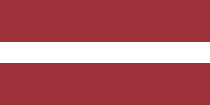
 |
|
|
|
|
Lithuania MEPs 2004–2009 |
|
Laima Liucija Andrikienė · Šarūnas Birutis · Danutė Budreikaitė · Arūnas Degutis · Jolanta Dičkutė · Gintaras Didžiokas · Eugenijus Gentvilas · Ona Juknevičienė · Vytautas Landsbergis · Justas Vincas Paleckis · Rolandas Pavilionis · Aloyzas Sakalas · Margarita Starkevičiūtė |
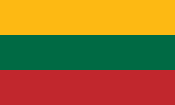
 |
|
|
|
|
Luxembourg MEPs 2004–2009 |
|
|
Robert Goebbels · Erna Hennicot-Schoepges · Astrid Lulling · Lydie Polfer · Jean Spautz · Claude Turmes
|
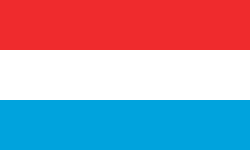
 |
|
|
|
|
Malta MEPs 2004–2009 |
|
|
John Attard Montalto · Glenn Bedingfield · Simon Busuttil · David Casa · Louis Grech · Joseph Muscat
|
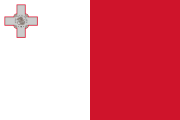
 |
|
|
|
|
Netherlands MEPs 2004–2009 |
|
|
Bert Doorn · Camiel Eurlings · Esther de Lange · Albert-Jan Maat · Maria Martens · Lambert van Nistelrooij · Ria Oomen-Ruijten · Joop Post · Cornelis Visser · Corien Wortmann-Kool · Max van den Berg · Thijs Berman · Emine Bozkurt · Ieke van den Burg · Jan Cremers · Dorette Corbey · Lily Jacobs · Edith Mastenbroek · Jan-Marinus Wiersma · Jeanine Hennis-Plasschaert · Jules Maaten · Toine Manders · Jan Mulder · Kathalijne Buitenweg · Joost Lagendijk · Paul van Buitenen · Els de Groen · Kartika Liotard · Erik Meijer · Johannes Blokland · Bastiaan Belder · Sophie in 't Veld
|
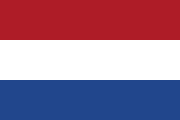
 |
|
|
|
|
Poland MEPs 2004–2009 |
|
|
Filip Adwent · Adam Bielan · Jerzy Buzek · Zdzisław Chmielewski · Sylwester Chruszcz · Marek Czarnecki · Ryszard Czarnecki · Hanna Foltyn-Kubicka · Bronisław Geremek · Lidia Geringer de Oedenberg · Adam Gierek · Maciej Giertych · Bogdan Golik · Genowefa Grabowska · Dariusz Grabowski · Małgorzata Handzlik · Stanisław Jałowiecki · Mieczysław Janowski · Filip Kaczmarek · Michał Kamiński · Bogdan Klich · Urszula Krupa · Wiesław Kuc · Barbara Kudrycka · Jan Kułakowski · Zbigniew Kuźmiuk · Janusz Lewandowski · Bogusław Liberadzki · Marcin Libicki · Jan Masiel · Jan Olbrycht · Janusz Onyszkiewicz · Bogdan Pęk · Józef Pinior · Mirosław Piotrowski · Paweł Piskorski · Zdzisław Podkański · Jacek Protasiewicz · Bogusław Rogalski · Dariusz Rosati · Wojciech Roszkowski · Leopold Rutowicz · Jacek Saryusz-Wolski · Czesław Siekierski · Marek Siwiec · Bogusław Sonik · Grażyna Staniszewska · Andrzej Szejna · Konrad Szymański · Witold Tomczak · Janusz Wojciechowski · Bernard Piotr Wojciechowski · Zbigniew Zaleski · Andrzej Tomasz Zapałowski · Tadeusz Zwiefka
|

 |
|
|
|
|
Portugal MEPs 2004–2009 |
|
|
Francisco Assis · Luis Manuel Capoulas Santos · Paulo Casaca · Carlos Coelho · Fausto Correia · Manuel António dos Santos · Maria da Assunção Esteves · Edite Estrela · Emanuel Jardim Fernandes · Elisa Ferreira · Ilda Figueiredo · Duarte Freitas · Ana Maria Gomes · Vasco Graça Moura · Pedro Guerreiro · Jamila Madeira · Sérgio Marques · João de Deus Pinheiro · Miguel Portas · Luís Queiró · José Ribeiro e Castro · José Albino Silva Peneda · Sérgio Sousa Pinto
|
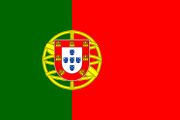
 |
|
|
|
|
Romania MEPs 2007–2009 |
|
|
Roberta Alma Anastase · Sebastian Valentin Bodu · Victor Boştinaru · Nicodim Bulzesc · Cristian Buşoi · Titus Corlăţean · Corina Creţu · Gabriela Creţu · Csaba Sógor · Magor Csibi · Dragoş Florin David · Daniel Dăianu · Constantin Dumitru · Sorin Frunzăverde · Petru Filip · Monica Maria Iacob Ridzi · Marian-Jean Marinescu · Ramona Mănescu · Cătălin Ioan Nechifor · Rareş Lucian Niculescu · Dumitru Oprea · Ioan Mircea Paşcu · Maria Petre · Rovana Plumb · Mihaela Popa · Nicolae-Vlad Popa · Daciana Octavia Sârbu · Adrian Severin · Theodor Stolojan · László Tőkés · Silvia Adriana Ţicău · Adina Ioana Vălean · Renate Weber · Iuliu Winkler · Marian Zlotea
|
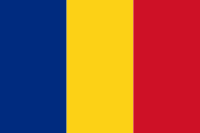
 |
|
|
|
|
Slovakia MEPs 2004–2009 |
|
|
Peter Baco · Edit Bauer · Irena Belohorská · Monika Beňová · Árpád Duka-Zólyomi · Milan Gaľa · Ján Hudacký · Miloš Koterec · Sergej Kozlík · Vladimír Maňka · Miroslav Mikolášik · Zita Pleštinská · Peter Šťastný · Anna Záborská
|
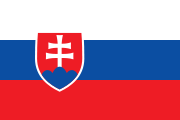
 |
|
|
|
|
Slovenia MEPs 2004–2009 |
|
|
Mihael Brejc · Mojca Drčar Murko · Romana Jordan Cizelj · Jelko Kacin · Ljudmila Novak · Borut Pahor (replaced by Aurelio Juri) · Lojze Peterle
|
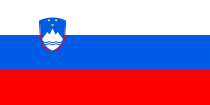
 |
|
|
|
|
Spain MEPs 2004–2009 |
|
|
Inés Ayala Sender · María del Pilar Ayuso González · María Badía i Cutchet · Enrique Barón Crespo · Josep Borrell Fontelles · Joan Calabuig Rull · Carlos Carnero González · Alejandro Cercas Alonso · Luis de Grandes Pascual · Pilar del Castillo Vera · Agustín Díaz de Mera García Consuegra · Rosa Díez González · Bárbara Dührkop Dührkop · Fernando Fernández Martín · Carmen Fraga Estévez · Gerardo Galeote Quecedo · José García-Margallo y Marfil · Iratxe García Pérez · Salvador Garriga Polledo · Ignasi Guardans Cambó · Cristina Gutiérrez-Cortines · David Hammerstein Mintz · María Esther Herranz García · Luis Herrero-Tejedor Algar · Carlos José Iturgáiz Angulo · Mikel Irujo · Antonio López-Istúriz White · Miguel Angel Martínez Martínez · Antonio Masip Hidalgo · Ana Mato Adrover · Jaime María Mayor Oreja · Manuel Medina Ortega · Íñigo Méndez de Vigo · Emilio Menéndez del Valle · Willy Meyer Pleite · Rosa Miguélez Ramos · Francisco José Millán Mon · Cristóbal Montoro Romero · Javier Moreno Sánchez · Raimon Obiols i Germà · Josu Ortuondo Larrea · Francisca Pleguezuelos Aguilar · José Javier Pomés Ruiz · Teresa Riera Madurell · Raül Romeva Rueda · Luisa Fernanda Rudi Ubeda · José Salafranca Sánchez-Neira · María Isabel Salinas García · Antolín Sánchez Presedo · María Sornosa Martínez · María Elena Valenciano Martínez-Orozco · Daniel Varela Suanzes-Carpegna · Alejo Vidal-Quadras Roca · Luis Yañez-Barnuevo García
|

 |
|
|
|
|
Sweden MEPs 2004–2009 |
|
|
Jan Andersson · Maria Carlshamre · Charlotte Cederschiöld · Lena Ek · Christofer Fjellner · Hélène Goudin · Anna Hedh · Ewa Hedkvist Petersen · Gunnar Hökmark · Anna Ibrisagic · Nils Lundgren · Cecilia Malmström · Carl Schlyter · Inger Segelström · Jonas Sjöstedt · Eva-Britt Svensson · Åsa Westlund · Anders Wijkman · Lars Wohlin
|
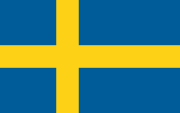
 |
|
|
|
|
United Kingdom MEPs 2004–2009 |
|
|
East Midlands
|
Derek Clark · Chris Heaton-Harris · Roger Helmer · Robert Kilroy-Silk · Bill Newton Dunn · Phillip Whitehead (replaced by Glenis Willmott)
|

 |
|
|
East of England
|
Christopher Beazley · Andrew Duff · Richard Howitt · Robert Sturdy · Jeffrey Titford · Geoffrey van Orden · Tom Wise
|
|
|
London
|
Gerard Batten · John Bowis · Robert Evans · Mary Honeyball · Jean Lambert · Sarah Ludford · Claude Moraes · Charles Tannock · Theresa Villiers (replaced by Syed Kamall)
|
|
|
North East England
|
Martin Callanan · Fiona Hall · Stephen Hughes
|
|
|
North West England
|
Robert Atkins · Chris Davies · Den Dover · Saj Karim · Arlene McCarthy · David Sumberg · Gary Titley · John Whittaker · Terry Wynn (replaced by Brian Simpson)
|
|
|
Northern Ireland
|
Jim Allister · Bairbre de Brún · Jim Nicholson
|
|
|
Scotland
|
Elspeth Attwooll · Ian Hudghton · David Martin · John Purvis · Alyn Smith · Struan Stevenson · Catherine Stihler
|
|
|
South East England
|
Richard Ashworth · Chris Huhne (replaced by Sharon Bowles) · Nirj Deva · James Elles · Nigel Farage · Daniel Hannan · Caroline Lucas · Ashley Mote · Emma Nicholson · Peter Skinner |
|
|
South West England
|
Giles Chichester · Trevor Colman · Glyn Ford · Caroline Jackson · Roger Knapman · Neil Parish · Graham Watson
|
|
|
Wales
|
Jillian Evans · Jonathan Evans · Glenys Kinnock · Eluned Morgan
|
|
|
West Midlands
|
Philip Bradbourn · Philip Bushill-Matthews · Michael Cashman · Neena Gill · Malcolm Harbour · Liz Lynne · Mike Nattrass
|
|
|
Yorkshire & the Humber
|
Godfrey Bloom · Richard Corbett · Timothy Kirkhope · Linda McAvan · Edward McMillan-Scott · Diana Wallis
|
|
|
|
|
|
| Category · European Union |
|
|
previous ← Members of the European Parliament 2009–2014 |
|
|
Austria MEPs 2009–2014 |
|
|
Martin Ehrenhauser · Karin Kadenbach · Othmar Karas · Elisabeth Köstinger · Jörg Leichtfried · Evelin Lichtenberger · Ulrike Lunacek · Hans-Peter Martin ·
Andreas Mölzer · Franz Obermayr · Hella Ranner · Evelyn Regner · Paul Rübig · Robert Sabitzer · Richard Seeber · Ernst Strasser · Johannes Swoboda
|

 |
|
|
|
|
Belgium MEPs 2009–2014 |
|
|
Dutch electoral college
|
Ivo Belet · Frieda Brepoels (replacing Bart De Wever) · Philip Claeys (replacing Filip Dewinter) · Jean-Luc Dehaene · Saïd El Khadraoui · Derk Jan Eppink (replacing Jean-Marie Dedecker) · Annemie Neyts-Uyttebroeck · Bart Staes · Dirk Sterckx · Marianne Thyssen · Kathleen Van Brempt · Frank Vanhecke · Guy Verhofstadt |

 |
|
|
French electoral college
|
Frédéric Daerden · Véronique De Keyser · Anne Delvaux · Isabelle Durant · Philippe Lamberts · Marc Tarabella (replacing Jean-Claude Marcourt) · Louis Michel · Frédérique Ries
|
|
|
German electoral college
|
Mathieu Grosch
|
|
|
|
|
Bulgaria MEPs 2009–2014 |
|
|
Slavcho Binev · Filiz Husmenova · Stanimir Ilchev · Iliana Ivanova · Rumiana Jeleva · Ivaylo Kalfin · Metin Kazak · Evgeni Kirilov · Nadezhda Mihaylova ·
Maria Nedeltcheva · Vladko Panayotov · Antonia Parvanova · Dimitar Stoyanov · Emil Stoyanov · Vladimir Urutchev · Kristian Vigenin · Iliana Yotova
|

 |
|
|
|
|
Cyprus MEPs 2009–2014 |
|
|
Takis Hadjigeorgiou · Ioannis Kasoulidis · Kyriacos Mavronicholas · Antigoni Papadopoulou · Eleni Theocharous · Kyriacos Triantaphyllides
|

 |
|
|
|
|
Czech Republic MEPs 2009–2014 |
|
|
Jan Březina · Zuzana Brzobohatá · Milan Cabrnoch · Andrea Češková · Robert Dušek · Richard Falbr · Hynek Fajmon · Jiří Havel · Jaromír Kohlíček · Edvard Kožušník · Jiří Maštálka ·
Miroslav Ouzký · Pavel Poc · Miloslav Ransdorf · Vladimir Remek · Zuzana Roithová · Libor Rouček · Olga Sehnalová · Ivo Strejček · Evžen Tošenovský · Oldřich Vlasák · Jan Zahradil
|

 |
|
|
|
|
Denmark MEPs 2009–2014 |
|
|
Margrete Auken · Bendt Bendtsen · Ole Christensen · Anne Elisabet Jensen · Dan Jørgensen · Morten Løkkegaard · Morten Messerschmidt ·
Jens Rohde · Anna Rosbach Andersen · Christel Schaldemose · Søren Søndergaard · Britta Thomsen · Emilie Turunen
|

 |
|
|
|
|
Estonia MEPs 2009–2014 |
|
|
Tunne Kelam · Kristiina Ojuland · Siiri Oviir · Ivari Padar · Vilja Savisaar · Indrek Tarand
|

 |
|
|
|
|
Finland MEPs 2009–2014 |
|
|
Sari Essayah · Carl Haglund · Satu Hassi · Heidi Hautala · Ville Itälä · Liisa Jaakonsaari · Anneli Jäätteenmäki ·
Eija-Riitta Korhola · Riikka Manner · Sirpa Pietikäinen · Mitro Repo · Timo Soini · Hannu Takkula
|

 |
|
|
|
|
France MEPs 2009–2014 |
|
|
East France
|
Joseph Daul · Véronique Mathieu · Arnaud Danjean · Michèle Striffler · Catherine Trautmann · Liêm Hoang-Ngoc · Sandrine Bélier · Nathalie Griesbeck · Bruno Gollnisch
|

 |
|
|
Île-de-France
|
Michel Barnier · Rachida Dati · Jean-Marie Cavada · Marielle Gallo · Philippe Juvin · Daniel Cohn-Bendit · Eva Joly · Pascal Canfin · Karima Delli · Harlem Désir · Pervenche Berès · Marielle de Sarnez · Patrick Le Hyaric |
|
|
Massif Central-Centre
|
Jean-Pierre Audy · Sophie Briard-Auconie · Catherine Soullie · Henri Weber · Jean-Paul Besset
|
|
|
North-West France
|
Dominique Riquet · Tokia Saïfi · Jean-Paul Gauzès · Pascale Gruny · Gilles Pargneaux · Estelle Grelier · Hélène Flautre · Marine Le Pen · Corinne Lepage · Jacky Hénin
|
|
|
Overseas Territories
|
Maurice Ponga · Élie Hoarau · Patrice Tirolien
|
|
|
South-East France
|
Françoise Grossetête · Damien Abad · Dominique Vlasto · Gaston Franco · Michel Dantin · Michèle Rivasi · François Alfonsi · Malika Benarab-Attou · Vincent Peillon · Sylvie Guillaume · Jean-Marie Le Pen · Jean-Luc Bennahmias · Marie-Christine Vergiat |
|
|
South-West France
|
Dominique Baudis · Christine de Veyrac · Alain Lamassoure · Marie-Thérèse Sanchez-Schmid · Kader Arif · Françoise Castex · José Bové · Catherine Grèze · Robert Rochefort · Jean-Luc Mélenchon |
|
|
West France
|
Christophe Béchu · Élisabeth Morin · Alain Cadec · Bernadette Vergnaud · Stéphane Le Foll · Yannick Jadot · Nicole Kiil-Nielsen · Philippe de Villiers · Sylvie Goulard
|
|
|
|
|
Germany MEPs 2009–2014 |
|
Jan Philipp Albrecht · Alexander Alvaro · Burkhard Balz · Lothar Bisky · Reimer Böge · Franziska Brantner · Elmar Brok · Udo Bullmann · Reinhard Bütikofer · Daniel Caspary · Jorgo Chatzimarkakis · Michael Cramer · Jürgen Creutzmann · Albert Deß · Christian Ehler · Ismail Ertug · Cornelia Ernst · Markus Ferber · Knut Fleckenstein · Karl-Heinz Florenz · Michael Gahler · Evelyne Gebhardt · Jens Geier · Sven Giegold · Norbert Glante · Ingeborg Gräßle · Matthias Groote · Gerald Häfner · Thomas Händel · Rebecca Harms · Martin Häusling · Jutta Haug · Nadja Hirsch · Monika Hohlmeier · Peter Jahr · Elisabeth Jeggle · Petra Kammerevert · Martin Kastler · Franziska Keller · Christa Klaß · Wolf Klinz · Jürgen Klute · Dieter-Lebrecht Koch · Silvana Koch-Mehrin · Holger Krahmer · Constanze Krehl · Wolfgang Kreissl-Dörfler · Werner Kuhn · Alexander Graf Lambsdorff · Bernd Lange · Werner Langen · Kurt Lechner · Klaus-Heiner Lehne · Josef Leinen · Hans-Peter Liese · Barbara Lochbihler · Sabine Lösing · Thomas Mann · Hans-Peter Mayer · Gesine Meißner · Norbert Neuser · Angelika Niebler · Doris Pack · Markus Pieper · Bernd Posselt · Hans-Gert Pöttering · Godelieve Quisthoudt-Rowohl · Bernhard Rapkay · Britta Reimers · Herbert Reul · Ulrike Rodust · Dagmar Roth-Behrendt · Heide Rühle · Horst Schnellhardt · Birgit Schnieber-Jastram · Helmut Scholz · Elisabeth Schroedter · Martin Schulz · Werner Schulz · Andreas Schwab · Peter Simon · Birgit Sippel · Renate Sommer · Jutta Steinruck · Alexandra Thein · Michael Theurer · Helga Trüpel · Thomas Ulmer · Sabine Verheyen · Axel Voss · Manfred Weber · Barbara Weiler · Anja Weisgerber · Kerstin Westphal · Rainer Wieland · Sabine Wils · Hermann Winkler · Joachim Zeller · Gabriele Zimmer |

 |
|
|
|
|
Greece MEPs 2009–2014 |
|
|
Kriton Arsenis · Nikolaos Chountis · Marilena Koppa · Giorgos Koumoutsakos · Rodi Kratsa-Tsagaropoulou · Stavros Lambrinidis · Thanasis Pafilis · Chrysoula Paliadeli · Giorgos Papakonstantinou · Giorgos Papanikolaou · Georgios Papastamkos · Thanos Plevris · Anni Podimata · Konstantinos Poupakis · Sylvana Rapti · Theodoros Skylakakis · Giorgos Stavrakakis · Giorgos Toussas · Michalis Tremopoulos · Ioannis Tsoukalas · Niki Tzavela · Marietta Giannakou
|

 |
|
|
|
|
Hungary MEPs 2009–2014 |
|
|
János Áder · Zoltán Balczó ·Lajos Bokros · Tamás Deutsch · Kinga Gál · Béla Glattfelder · Kinga Göncz · Zita Gurmai · Enikő Győri · András Gyürk · Ágnes Hankiss · Edit Herczog · Lívia Járóka · Ádám Kósa · Béla Kovács · Krisztina Morvai · Csaba Őry · Pál Schmitt · György Schöpflin · László Surján · József Szájer · Csanád Szegedi · Csaba Tabajdi
|

 |
|
|
|
|
Ireland MEPs 2009–2014 |
|
|
Dublin
|
Proinsias De Rossa · Joe Higgins · Gay Mitchell
|

 |
|
|
East
|
Liam Aylward · Nessa Childers · Mairead McGuinness
|
|
|
North-West
|
Pat "the Cope" Gallagher · Marian Harkin · Jim Higgins
|
|
|
South
|
Brian Crowley · Alan Kelly · Seán Kelly
|
|
|
|
|
Italy MEPs 2009–2014 |
|
|
Central
|
Roberta Angelilli · Alfredo Antoniozzi · Paolo Bartolozzi · Carlo Casini · Silvia Costa · Leonardo Domenici · Roberto Gualtieri · Guido Milana · Francesco De Angelis · Claudio Morganti · Alfredo Pallone · Niccolò Rinaldi · Potito Salatto · David Sassoli · Marco Scurria
|

 |
|
|
Islands
|
Rita Borsellino · Rosario Crocetta · Salvatore Iacolino · Giovanni La Via · Saverio Romano · Giommaria Uggias
|
|
|
North East
|
Sergio Berlato · Luigi Berlinguer · Mara Bizzotto · Antonio Cancian · Salvatore Caronna · Giovanni Collino · Luigi De Magistris · Herbert Dorfmann · Lorenzo Fontana · Elisabetta Gardini · Tiziano Motti · Vittorio Prodi · Amalia Sartori · Giancarlo Scottà · Debora Serracchiani
|
|
|
North West
|
Gabriele Albertini · Sonia Alfano · Magdi Allam · Francesca Balzani · Vito Bonsignore · Mario Borghezio · Sergio Cofferati · Lara Comi · Carlo Fidanza · Mario Mauro · Cristiana Muscardini · Pier Antonio Panzeri · Fiorello Provera · Licia Ronzulli · Oreste Rossi · Francesco Speroni · Gianluca Susta · Patrizia Toia · Gianni Vattimo · Sonia Viale · Iva Zanicchi |
|
|
Southern
|
Pino Arlacchi · Raffaele Baldassarre · Andrea Cozzolino · Paolo De Castro · Vincenzo Iovine · Clemente Mastella · Barbara Matera · Erminia Mazzoni · Ciriaco De Mita · Aldo Patriciello · Mario Pirillo · Gianni Pittella · Crescenzio Rivellini · Sergio Silvestris · Salvatore Tatarella
|
|
|
|
|
Latvia MEPs 2009–2014 |
|
|
Ivars Godmanis · Sandra Kalniete · Arturs Krišjānis Kariņš · Aleksandrs Mirskis · Alfrēds Rubiks · Inese Vaidere · Tatjana Ždanoka · Roberts Zīle
|

 |
|
|
|
|
Lithuania MEPs 2009–2014 |
|
Laima Liucija Andrikienė · Zigmantas Balčytis · Vilija Blinkevičiūtė · Leonidas Donskis · Juozas Imbrasas · Vytautas Landsbergis ·
Radvilė Morkūnaitė · Rolandas Paksas · Justas Vincas Paleckis · Algirdas Saudargas · Valdemar Tomaševski · Viktor Uspaskich |

 |
|
|
|
|
Luxembourg MEPs 2009–2014 |
|
|
Georges Bach · Frank Engel · Robert Goebbels · Charles Goerens · Astrid Lulling · Claude Turmes
|

 |
|
|
|
|
Malta MEPs 2009–2014 |
|
|
John Attard Montalto · Simon Busuttil · David Casa · Joseph Cuschieri · Louis Grech · Edward Scicluna
|

 |
|
|
|
|
Netherlands MEPs 2009–2014 |
|
|
Hans van Baalen · Bas Belder · Thijs Berman · Louis Bontes · Emine Bozkurt · Wim van de Camp · Marije Cornelissen · Peter van Dalen · Bas Eickhout · Gerben-Jan Gerbrandy · Jeanine Hennis-Plasschaert · Dennis de Jong · Esther de Lange · Kartika Liotard · Barry Madlener · Toine Manders · Judith Merkies · Lambert van Nistelrooij · Ria Oomen-Ruijten · Judith Sargentini · Marietje Schaake · Laurence Stassen · Daniël van der Stoep · Sophie in 't Veld · Corien Wortmann-Kool
|

 |
|
|
|
|
Poland MEPs 2009–2014 |
|
|
Adam Bielan · Piotr Borys · Jerzy Buzek · Tadeusz Cymański · Ryszard Czarnecki · Lidia Geringer de Oedenberg · Adam Gierek · Marek Gróbarczyk · Andrzej Grzyb · Róża Gräfin Von Thun Und Hohenstein · Małgorzata Handzlik · Jolanta Hibner · Danuta Hubner · Danuta Jazłowiecka · Sidonia Jędrzejewska · Filip Kaczmarek · Jarosław Kalinowski · Michał Kamiński · Lena Kolarska-Bobińska · Paweł Kowal · Jacek Kurski · Ryszard Legutko · Janusz Lewandowski · Bogusław Liberadzki · Krzysztof Lisek · Elżbieta Łukacijewska · Bogdan Marcinkiewicz · Marek Migalski · Sławomir Nitras · Wojciech Olejniczak · Jan Olbrycht · Mirosław Piotrowski · Tomasz Poręba · Jacek Protasiewicz · Jacek Saryusz-Wolski · Joanna Senyszyn · Czesław Siekierski · Marek Siwiec · Joanna Skrzydlewska · Bogusław Sonik · Konrad Szymański · Rafał Trzaskowski · Jarosław Wałęsa · Jacek Włosowicz · Janusz Wojciechowski · Paweł Zalewski · Artur Zasada · Janusz Zemke · Zbigniew Ziobro · Tadeusz Zwiefka
|

 |
|
|
|
|
Portugal MEPs 2009–2014 |
|
|
Luís Paulo Alves · Regina Bastos · Luís Capoulas Santos · Graça Carvalho · Maria do Céu Patrão · Carlos Coelho · António Correia de Campos · Mário David · Edite Estrela · Diogo Feio · José Manuel Fernandes · Elisa Ferreira · João Ferreira · Ilda Figueiredo · Ana Gomes · Marisa Matias · Nuno Melo · Vital Moreira · Miguel Portas · Paulo Rangel · Rui Tavares · Nuno Teixeira
|

 |
|
|
|
|
Romania MEPs 2009–2014 |
|
Elena Antonescu · Elena Băsescu · George Becali · Sebastian Bodu · Victor Boştinaru · Cristian Buşoi · Corina Creţu · Sabin Cutaş · Vasilica Dănciă · Ioan Enciu · Cătălin Ivan · Petru Luhan · Monica Macovei · Marian-Jean Marinescu · Ramona Mănescu · Iosif Matula · Norica Nicolai · Rareş Niculescu · Ioan Mircea Paşcu · Rovana Plumb · Cristian Preda · Daciana Octavia Sârbu · Adrian Severin · Theodor Stolojan · Csaba Sogor · László Tőkés · Claudiu Ciprian Tănăsescu · Silvia Adriana Ţicău · Traian Ungureanu · Corneliu Vadim-Tudor · Adina Ioana Vălean · Renate Weber · Iuliu Winkler |

 |
|
|
|
|
Slovakia MEPs 2009–2014 |
|
|
Edit Bauer · Monika Beňová · Sergej Kozlík · Eduard Kukan · Vladimír Maňka · Alajos Mészáros · Miroslav Mikolášik ·
Katarína Neveďalová · Jaroslav Paška · Monika Smolková · Peter Šťastný · Boris Zala · Anna Záborská
|

 |
|
|
|
|
Slovenia MEPs 2009–2014 |
|
|
Romana Jordan Cizelj · Tanja Fajon · Jelko Kacin · Lojze Peterle · Zoran Thaler · Ivo Vajgl · Milan Zver
|

 |
|
|
|
|
Spain MEPs 2009–2014 |
|
|
Magdalena Álvarez Arza · Josefa Andrés Barea · Pablo Arias Echeverría · Inés Ayala Sender · Pilar Ayuso González · María Badia i Cutchet · Izaskun Bilbao · Alejandro Cercas Alonso · Ricardo Cortes Lastra · Luis de Grandes Pascual · María Pilar del Castillo Vera · Agustín Díaz de Mera García-Consuegra · Rosa Estaràs Ferragut · Santiago Fisas Ayxelá · Carmen Fraga Estévez · Iratxe García Pérez · José Manuel García-Margallo Marfil · Eider Gardiazabal Rubial · Garriga Polledo · Enrique Guerrero Salom · Cristina Gutiérrez-Cortines Corral · María Esther Herranz García · Carlos Iturgaiz Angulo · Ramón Jáuregui Atondo · Teresa Jiménez-Becerril Barrio · Oriol Junqueras · Verónica Lope Fontagne · Juan Fernando López Aguilar · Antonio López-Istúriz White · Miguel Ángel Martínez Martínez · Antonio Masip Hidalgo · Gabriel Mato Adrover · Jaime Mayor Oreja · Francisco Millán Mon · Íñigo Méndez de Vigo Montojo · Emilio Menéndez del Valle · Willy Meyer · María Muñiz de Urquiza · Raimon Obiols i Germà · Juan Andrés Perelló Rodríguez · Teresa Riera Madurell · Carmen Romero López · Raül Romeva · José Ignacio Salafranca Sánchez-Neyra · Antolín Sánchez Presedo · Francisco Sosa Wagner · Ramon Tremosa · Alejo Vidal-Quadras Roca · Luis Yáñez Barnuevo · Pablo Zalba Bidegain
|

 |
|
|
|
|
Sweden MEPs 2009–2014 |
|
|
Anna Maria Corazza Bildt · Lena Ek · Christian Engström · Christofer Fjellner · Göran Färm · Anna Hedh · Gunnar Hökmark · Anna Ibrisagic · Olle Ludvigsson ·
Isabella Lövin · Marit Paulsen · Carl Schlyter · Olle Schmidt · Alf Svensson · Eva-Britt Svensson · Marita Ulvskog · Åsa Westlund · Cecilia Wikström
|

 |
|
|
|
|
United Kingdom MEPs 2009–2014 |
|
|
East Midlands
|
Derek Clark · Roger Helmer · Emma McClarkin · Bill Newton Dunn · Glenis Willmott
|

 |
|
|
East of England
|
Stuart Agnew · David Campbell Bannerman · Andrew Duff · Vicky Ford · Richard Howitt · Robert Sturdy · Geoffrey Van Orden
|
|
|
London
|
Gerard Batten · Mary Honeyball · Syed Kamall · Jean Lambert · Sarah Ludford · Claude Moraes · Charles Tannock · Marina Yannakoudakis
|
|
|
North East England
|
Martin Callanan · Fiona Hall · Stephen Hughes
|
|
|
North West England
|
Sir Robert Atkins · Jacqueline Foster · Sajjad Karim · Paul Nuttall · Chris Davies · Nick Griffin · Arlene McCarthy · Brian Simpson |
|
|
Northern Ireland
|
Bairbre de Brún · Diane Dodds · Jim Nicholson
|
|
|
Scotland
|
Ian Hudghton · George Lyon · David Martin · Alyn Smith · Struan Stevenson · Catherine Stihler
|
|
|
South East England
|
Marta Andreasen · Richard Ashworth · Catherine Bearder · Sharon Bowles · Nirj Deva · James Elles · Nigel Farage · Daniel Hannan · Keith Taylor (replacing Caroline Lucas) · Peter Skinner |
|
|
South West England
|
Giles Chichester · Trevor Colman · Ashley Fox · Julie Girling · William Dartmouth · Graham Watson
|
|
|
Wales
|
John Bufton · Jillian Evans · Kay Swinburne · Derek Vaughan
|
|
|
West Midlands
|
Philip Bradbourn · Michael Cashman · Malcolm Harbour · Liz Lynne · Mike Nattrass · Nikki Sinclaire
|
|
|
Yorkshire & the Humber
|
Godfrey Bloom · Andrew Brons · Timothy Kirkhope · Linda McAvan · Edward McMillan-Scott · Diana Wallis
|
|
|
|
|
|
| Category · European Union |
|
| Persondata |
| Name |
Buzek, Jerzy |
| Alternative names |
|
| Short description |
President of the European Parliament |
| Date of birth |
3 July 1940 |
| Place of birth |
Smilovice (Frýdek-Místek District), Province of Silesia, Nazi Germany |
| Date of death |
|
| Place of death |
|

![]() listen) (born 3 July 1940) is a Polish engineer, academic lecturer and politician. He was the Prime Minister of Poland from 1997 to 2001 and has been a member of the European Parliament since 13 June 2004. On 14 July 2009, he was elected its President, succeeding Hans-Gert Pöttering.[1]
listen) (born 3 July 1940) is a Polish engineer, academic lecturer and politician. He was the Prime Minister of Poland from 1997 to 2001 and has been a member of the European Parliament since 13 June 2004. On 14 July 2009, he was elected its President, succeeding Hans-Gert Pöttering.[1]
